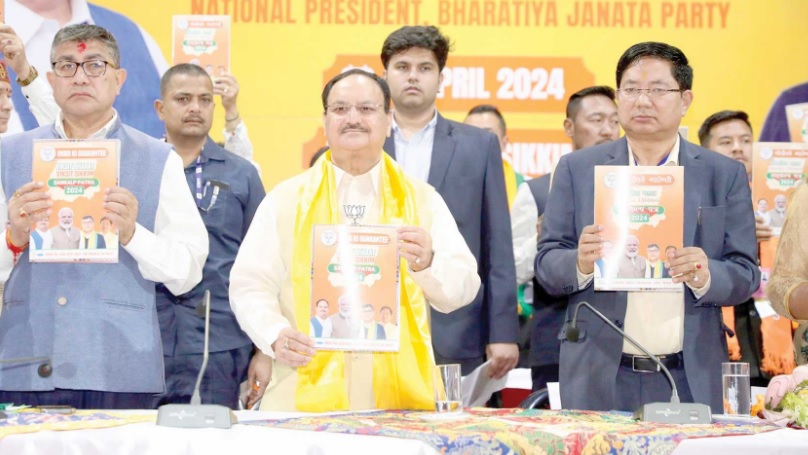
Gangtok, 15 Sep : Starting from October 1, 2023, the Registration of Births and Deaths (Amendment) Act, 2023 will come into full effect. This amendment introduces significant changes, permitting the utilization of a birth certificate as a singular document for various purposes such as gaining admission to educational institutions, obtaining a driver’s license, compiling voter lists, acquiring an Aadhaar number, registering marriages, or securing government job appointments. Furthermore, the primary objective of this legislation is to establish comprehensive state and national databases of registered births and deaths.
Notably, this marks the first instance of an amendment to the 54-year-old Births and Deaths law, which was originally instituted in 1969. The amendment successfully passed through Parliament and received the approval of the President of India. While government authorities assert that the Bill will facilitate increased accessibility to free rations and other subsidies for citizens, as well as eliminate redundancies within the existing database, privacy advocates are voicing their apprehensions. They express concerns that the creation of this extensive database may inadvertently exclude certain segments of the population from its records.
What Does the Registration of Births and Deaths (Amendment) Bill, 2023 Encompass?
The Registration of Births and Deaths (Amendment) Bill, 2023 has a core objective of establishing a centralized database for births and deaths, facilitating the transparent delivery of public services, and enabling updates to various other databases. The national database, envisaged by this bill, may be shared with other authorities responsible for creating or maintaining additional databases, including the population register, electoral rolls, ration cards, and any other nationally recognized databases as specified.
Additionally, the Act outlines the provision for the appointment of a Registrar-General, India, who possesses the authority to issue general directives pertaining to the registration of births and deaths. Furthermore, this official will be responsible for maintaining a comprehensive national database encompassing registered births and deaths.
How Will it Impact the General Population?
During the presentation of the Bill, Union Minister of State for Home, Nityanand Rai, emphasized that the existing law governing births and deaths had remained unchanged since 1969. Given the advancements in technology, there arose a pressing need to make the law more accessible and user-friendly for citizens. The minister advocated for the digitization of these vital databases as part of this reform.
Moreover, the minister highlighted that the Bill’s implementation would enhance the efficiency and transparency in the delivery of social benefits to the citizens. It is designed to combat duplication and errors present in the nation’s current databases, ultimately benefiting the populace.
What Are the Privacy Concerns Surrounding the Bill?
Activists have raised significant concerns regarding the Registration of Births and Deaths (Amendment) Bill, 2023. One prominent issue revolves around the proposal to link the Aadhaar details of both the parents and the individual reporting the birth to the child’s birth certificate. Critics argue that this linking infringes upon an individual’s Right to Privacy. It’s worth noting that the informant responsible for reporting the birth could be a variety of individuals, including a hospital’s overseeing doctor, a hotel manager where the birth occurred, or someone present at the birthplace. Once this Bill takes effect, the Aadhaar information of these informants will be tethered to the child’s Aadhaar, potentially compromising the informants’ privacy rights disproportionately, as highlighted by PRS India.
Another privacy concern raised by researchers pertains to the linking of an individual’s Aadhaar across multiple databases. As previously mentioned, the national births and deaths database may be shared with authorities overseeing various other databases, such as electoral rolls and ration card records. Importantly, this sharing occurs without obtaining the individual’s consent.
Furthermore, the Bill aims to establish the birth certificate as the sole and conclusive proof of an individual’s age, which would subsequently be utilized to access a range of benefits, including the right to vote, obtain ration, secure admission into schools, and apply for marriage or government jobs. This poses challenges for individuals without a birth certificate, particularly in cases where a child’s birth was registered but they later left their home or lost their parents due to a natural disaster. In such instances, as noted by PRS research, determining their age becomes a complex issue, potentially impeding their access to essential services and opportunities.






